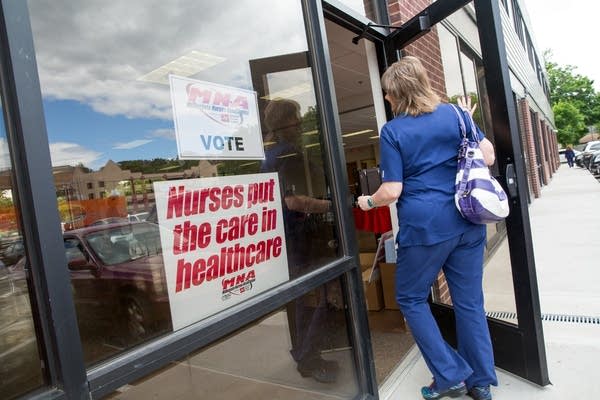Allina nurse strike: What you need to know

Nurse Jodi Johnson heads into the Minnesota Nurses Association voting center in St. Paul to cast her vote regarding a new contract offer from Allina Health on June 6.
Evan Frost | MPR News
Go Deeper.
Create an account or log in to save stories.
Like this?
Thanks for liking this story! We have added it to a list of your favorite stories.


